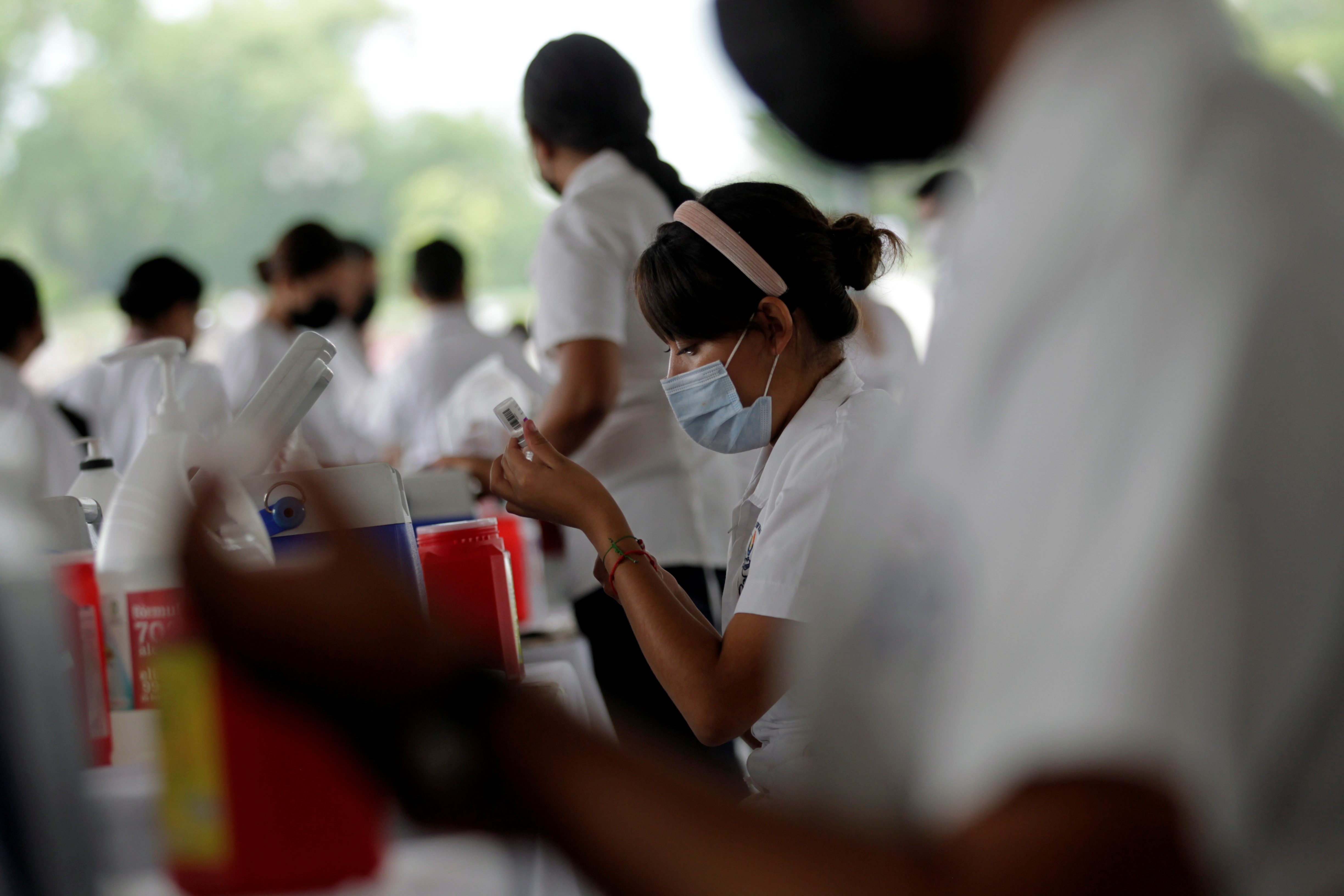SUMMARY
This is AI generated summarization, which may have errors. For context, always refer to the full article.

Alarm bells are ringing once more about a new coronavirus variant called Lambda – just as the world thought it was dealing with more than it could handle with the already highly infectious Delta variant.
Virus mutations are normal, as the virus adapts to its hosts. Scientists continuously study these changes and how populations will be affected, especially alongside the dynamics of the global vaccination program.

Lambda’s mutation occurs within a coronavirus cell’s spike protein, or the part of the cell that attaches to the host and allows for replication, according to Rachel Graham, an epidemiology professor from the University of North Carolina.
The Lambda variant was first documented in Peru in December 2020, and is now spreading rapidly in South America. The World Health Organization (WHO) named Lambda a variant of interest on June 14, 2021.
It may be too early to say that Lambda will be the next big bad character in the pandemic, as there is still limited information about the variant. But here are some things to know about Lambda, based on early studies and expert opinions:
It is highly infectious
In its report in mid-June, the WHO said that “Lambda has been associated with substantive rates of community transmission in multiple countries, with rising prevalence over time concurrent with increased COVID-19 incidence.”
According to a preprint July 2021 study in Chile, the L45Q2 mutation found in the Lambda variant had been shown to increase viral infectivity. (Preprint studies mean they have yet to be peer-reviewed.)
The Chile researchers observed that Lambda’s spike protein presented increased infectivity compared to the spike proteins of the Alpha and Gamma variants – variants of concern already known to be highly infectious.
Another preprint study in the United States found that the Lambda spike protein increased viral infectivity by two-fold – “an increase equivalent to that of the Delta and Delta plus variants.”
It shows vaccine resistance
The Chile study suggested that the variant may be able to evade vaccine antibodies.
“Our results indicate that mutations present in the spike protein of the Lambda variant of interest confer increased infectivity and immune escape from neutralizing antibodies elicited by CoronaVac,” the study wrote.
CoronaVac is the vaccine manufactured by Sinovac, the Chinese brand that comprises the bulk of the Philippines’ vaccine stockpile.
The Chile researchers said that the initial data on Lambda reinforces the need for strict genomic surveillance accompanying the vaccination programs of countries with high COVID-19 transmission.
It could be a ‘potential threat to human society’
Researcher Kei Sato of the University of Tokyo said that “Lambda can be a potential threat to the human society.”
Because of the variant’s ability to circumvent immunity in previously infected patients, epidemiology professor Graham said a new wave of infections could happen in a few months in the United States, where Lambda has not dominated yet.
We may need booster shots
The US preprint suggested that public health policymakers and manufacturers should consider booster immunizations to beef up protection against the Lambda variant and variants of concern.
Meanwhile, Rockefeller University researchers said that third doses of Pfizer-BioNTech or Moderna vaccines for vaccinated people who never had COVID-19 would likely increase levels of antibodies, but not antibodies that are better able to neutralize new virus variants. – with reports from Mary Dequinto/Rappler.com
Add a comment
How does this make you feel?

There are no comments yet. Add your comment to start the conversation.